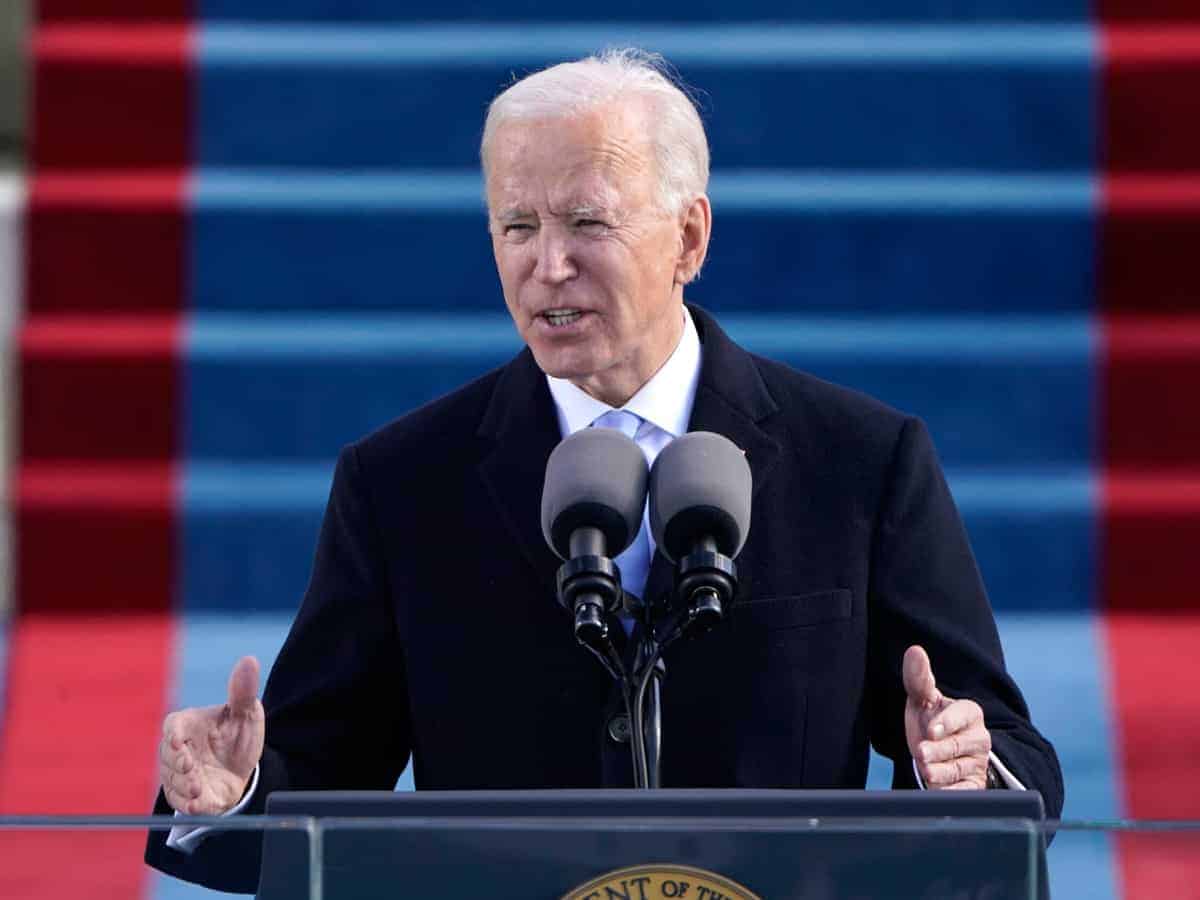Washington: Setting ambitious goals that will ensure that the US can meet the urgent demands of the climate crisis, President Joe Biden will take steps which will put the country on an “irreversible path” to a net-zero economy by 2050, the White House said on Wednesday.
Biden on Wednesday is set to sign a series of executive orders and take steps to tackle climate change and transition America to a clean energy economy, it said.
The president set ambitious goals that will ensure that the US and the world can meet the urgent demands of the climate crisis, while empowering American workers and businesses to lead a clean energy revolution that achieves a carbon pollution-free power sector by 2035 and puts the country “on an irreversible path to a net-zero economy by 2050”, the White House said.
“Today’s actions advance those goals and ensure that we are tapping into the talent, grit, and innovation of American workers, revitalising the US energy sector, conserving our natural resources and leveraging them to help drive our nation toward a clean energy future, creating well-paying jobs with the opportunity to join a union, and delivering justice for communities who have been subjected to environmental harm, it said.
Hours after his swearing-in on January 20, Biden signed an executive order to rejoin the Paris Agreement on Climate Change. He appointed former Secretary of State John Kerry as a special envoy on climate change, who would be part of his national security council.
According to the White House, an executive order to be signed by Biden clearly establishes climate considerations as an essential element of the US foreign policy and national security.
The order affirms that, in implementing and building on the Paris deal’s objectives, the US will exercise its leadership to promote a significant increase in global ambition. It makes clear that both significant short-term global emission reductions and net-zero global emissions by mid-century or before are required to avoid setting the world on a dangerous, potentially catastrophic, climate trajectory.
Biden will host a Leaders’ Climate Summit on Earth Day (April 22), the White House said.
It said the executive order will kick off the process of developing the US’ nationally determined contribution its emission reduction target under the Paris agreement, as well as a climate finance plan.
Among numerous other steps aimed at prioritising climate in US foreign policy and national security, the order directs all agencies to develop strategies for integrating climate considerations into their international work.
The order directs the federal agencies to procure carbon pollution-free electricity and clean, zero-emission vehicles to create good-paying, union jobs and stimulate clean energy industries.
Among others, Biden’s order commits to the goal of conserving at least 30 per cent of US lands and oceans by 2030 and launches a process for stakeholder engagement from agricultural and forest landowners, fishermen, tribes, states, territories, local officials and others to identify strategies that will result in broad participation.
The order directs federal agencies to eliminate fossil fuel subsidies as consistent with applicable law and identify new opportunities to spur innovation, commercialisation, and deployment of clean energy technologies and infrastructure.
The order directs pause on entering into new oil and natural gas leases on public lands or offshore waters to the extent possible, launch a rigorous review of all existing leasing and permitting practices related to fossil fuel development on public lands and waters, and identify steps that can be taken to double renewable energy production from offshore wind by 2030.
Biden has also established the White House Office of Domestic Climate Policy led by the first-ever National Climate Advisor and Deputy National Climate Advisor creating a central office in the White House that is charged with coordinating and implementing the president’s domestic climate agenda.
Biden’s order re-establishes the President’s Council of Advisors on Science and Technology (PCAST). The PCAST — co-chaired by Biden’s science advisor — will advise the president on policy that affects science, technology and innovation.
The Council will also advise the president on scientific and technical information that is needed to inform public policy relating to the economy, worker empowerment, education, energy, environment, public health, national and homeland security, racial equity and other topics, the White House said.

